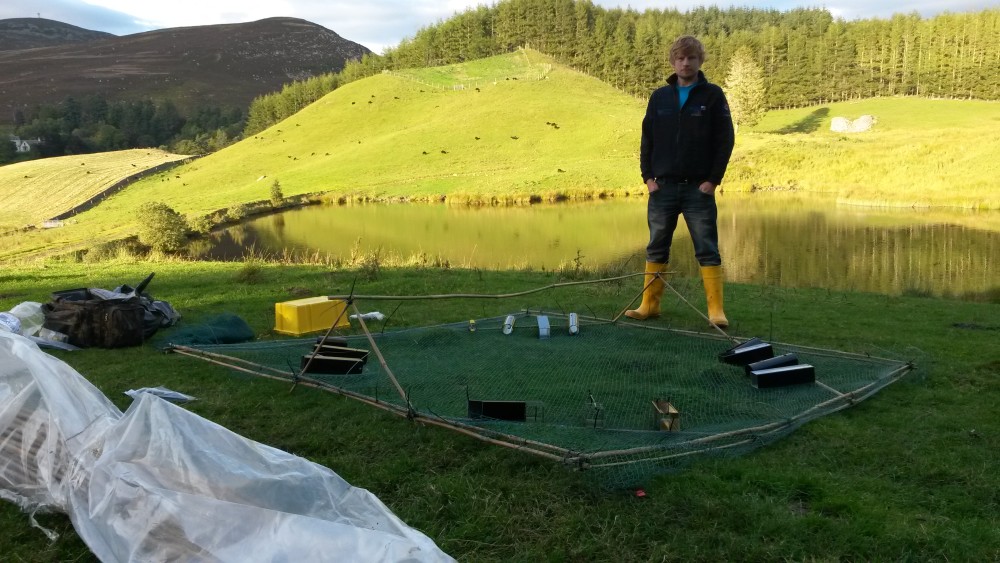Signal crayfish

Signal crayfish have serious impacts on native freshwater species and freshwater eco-systems, but previous attempts to lessen their populations have been ineffective.
The project
Connor Wood has been investigating how controlling the signal crayfish population may be influencing the sex ratios of their populations. He has just completed the cage study and lab analysis of the female crayfish. It has proven to be an extremely useful pilot study. The cages worked as intended – there were zero escapees and only three mortalities, which can reasonably be assumed to be natural. The majority of the females were gravid – carrying eggs. During lab analysis, they were able to differentiate fertilized and non-fertilized eggs, and in some cases identify specific developmental stages, via visual inspection and dissection under a microscope.
Latest update
During the Capture-Mark-Recapture part of the study, a total of 3,531 individual crayfish were captured and released: 2,509 from the site in Glenshee, and 1,022 from the site in Nairn. In Glenshee, the catch was composed of 1,014 males, 1,073 females and 422 juveniles (i.e. crayfish too small to accurately discern their sex). From Nairn, there were 304 males, 375 females and 343 juveniles. There is still much work to do, but the preliminary analysis has shown some interesting results, with the 0% removal treatments catching noticeably more females than males.
You can read Connor’s final project report here.
You can also read Connor’s poster explaining why trapping is not a viable solution to controlling signal crayfish populations here.
